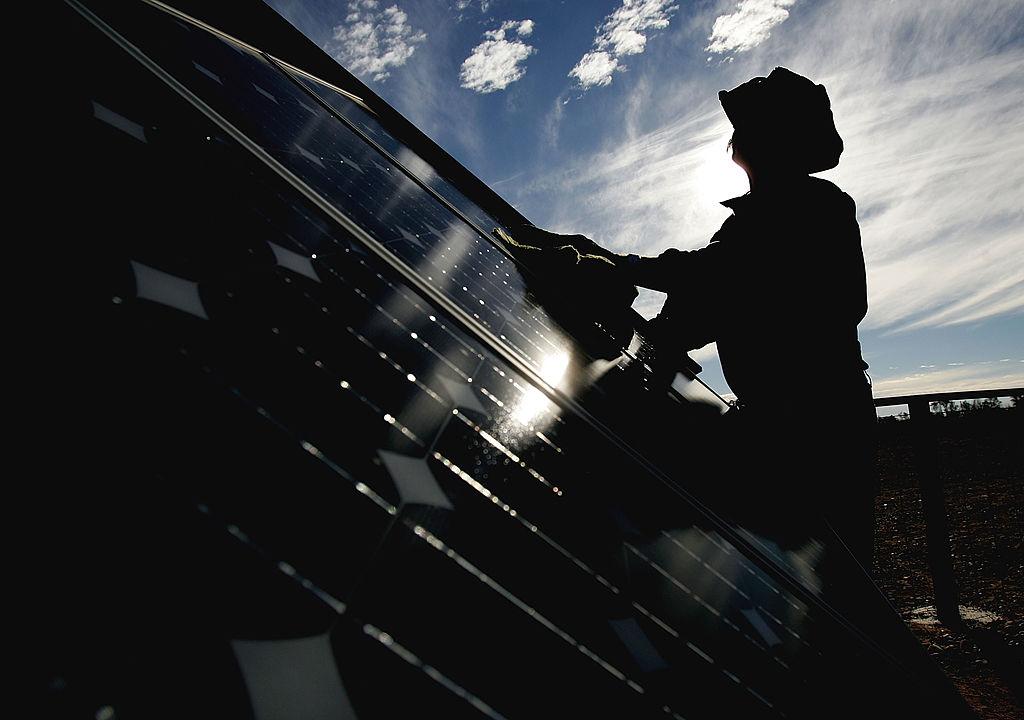
Halfway between Alice Springs and Darwin is a 10,000-square-kilometre property formerly used by the Packer family as a cattle station. In the 20th century, this land was part of Australia’s vast and economically vital agricultural industry. Now, it’s set to become a key element of a new Australian economic vision. The land is flagged for a massive project that’s attracted support from prominent Australian tech billionaires and has been assessed by Infrastructure Australia as ready for investment.
Sun Cable’s proposed Australia–Asia PowerLink (AAPL) consists of a 12,000-hectare solar farm generating 17–20 gigawatts, an 800-kilometre, high-voltage direct-current overhead cable from the farm to Darwin, a 30-gigawatt battery and storage load-balancing facility in Darwin, and a 4,200-kilometre subsea cable to Singapore.
The federal and Northern Territory governments have designated the proposal as a ‘major project’ and Mike Cannon-Brookes’ Grok Ventures and Andrew ‘Twiggy’ Forrest’s Squadron Energy have both invested significant capital. This backing from the public and private sectors is a critical sign of confidence in the project—but it faces significant regional competition. William Stroll, a Singapore-based lawyer specialising in energy, told the ABC that Sun Cable’s vision was ‘commendable’ but likely to be prohibitively expensive.
Australians accept that it’s time to turn to large-scale renewable energy. While we’ve been lagging the rest of the world on the progression of our public discourse, we’re in front in terms of northern Australia’s comparative advantage in producing clean energy. The NT’s Barkly region is positively sun-soaked; far enough south to escape most of the north’s tropical wet-season deluges, but far enough north to easily provide zero-emissions power transmission to Darwin.
The project would be good for the north economically with spin-off industries and the potential to establish Darwin as a clean manufacturing and energy hub. It will provide 1,500 jobs during construction and 350 ongoing. As a source of affordable and reliable power, it’s expected to reduce Darwin’s energy prices by 12% and help leverage northern Australia’s natural advantages to boost regional development.
It would also be good for the country and the globe in environmental terms, with an estimated abatement of 2.5 million tonnes of CO2-equivalent per year in Australia and a further 6 million overseas. It demonstrates that economic growth does not need to result in carbon pollution and that such activity can in fact reduce pollution.
Because the exact route of the subsea cable is yet to be decided, the environmental risks of laying it haven’t been formally assessed.
Most broadly, the project would be good for Australia as a regional power and for our neighbours. With energy demand in our region rising, the AAPL will establish an Australian renewable energy export industry. The AAPL will supply Singapore with up to 15–20% of its energy needs. Singapore sets that limit to diversify its energy sources, and the target is not limited by any capacity constraint on the Australian end. There’s also a robust Indonesian investment link and global exposure. Many of our neighbours have emissions reduction targets more ambitious than Australia’s, which will make them reliable consumers of renewable energy, especially as their economies develop and incomes grow, and there’s scope to expand and replicate the AAPL to meet surging demand.
With Sun Cable a new company established for the initial purpose of delivering the world’s biggest solar farm and intercontinental energy transmission infrastructure network, Infrastructure Australia has assessed the AAPL as a high-risk proposal. The AAPL’s success depends on confidently anticipated but not yet concretely realised factors. When they come off, projects like this are highly rewarded, and faith in bold and visionary projects is needed to catalyse the restructuring of Australia’s energy sector and economy.
Australians expect their government and bureaucracy to spend money carefully and many policy mechanisms, like grant programs, have very low risk thresholds. While there’s pressure to pick winners consistently, a risk-averse mindset sees many of Australia’s greatest ideas left unfunded or sent offshore. Great innovation requires engagement with and acceptance of risk. And, at times, failure. After all, the lesson from the world’s most innovative companies, from Apple to Amazon, is that success comes from failure, not despite it.
The AAPL is an example of what Australia is doing right. Backing our innovators and entrepreneurs, using our natural advantages, investing in our regions, taking charge of our energy transition, and facilitating more robust partnerships with our neighbours; these are all the best parts of what Australia has to offer.
Construction is expected to begin in 2024, and the project is intended to be fully operational in 2029. Last week, the Australian Renewable Energy Agency announced a grant of $45 million over eight years to the Australian Centre for Advanced Photovoltaics to develop cheaper, more efficient solar panels.
If Australia is to continue to be the lucky country in the 21st century, then it must engage with risk. It must dare to embrace new ways of thinking. And when it stumbles, it must learn from the setbacks, not shy away from them.